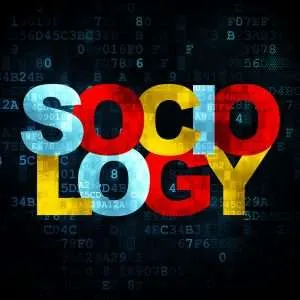Editorial Note:
This essay titled, Systems of Oppression, Power and Privilege is being published on behalf of Applied Worldwide’s student essay competition. Students were prompted to respond to the question, “Why is sociology important?” We have awarded 16 finalists from all over the world, and we published these essays over the course of a few weeks.
This essay was written by Michelle Mooney from The University of Tampa in Florida, US. This essay received a second place award. We had a really great turnout and would like to thank everyone who submitted an essay. We received a wide variety of creative interpretations and responses, so browse our essay directory!
Michelle Mooney on Systems of Oppression, Power and Privilege
Civil rights activist, Martin Luther King Jr. once said that “the ultimate tragedy is not the oppression and cruelty by the bad people but the silence over that by the good people.”
Sociology provides an in-depth theoretical and conceptual outlook on systems of oppression within our society as well as how this is associated with the acts of privilege and power. Given the history of power and privilege while also understanding the shift from more overt acts to hidden or institutionalized ones, we then become more observant and aware of the patterns of reinforced oppression across various marginalized social groups.
Through the learnings of sociology, we are not only able to gain awareness of how different identities and the intersectionality of one’s identity, but also can begin understanding the ways in which this impacts our unique experiences of the societal world.
While we have continued to witness the multiple tragedies as a direct result of oppression and over many different periods, sociology acts as an advocate by providing the knowledge on how these systems have been developed, reinforced, and maintained over time.
Systems of Oppression
As a recent college graduate, I consider myself fortunate to have found enjoyment and such passion in understanding the world through the knowledge of sociology. Most importantly, it has come allowed me to witness how systems of oppression have affected the ways of our societal and overarching world-views that exists within our social spaces.
John Freeman’s (2017) collaboration with many authors in the novel titled, “Tales of Two Americas” contributed to my knowledge gained about the inequalities among our nation, and each essay compiled in it has clearly depicted how it has come to divide us into these groups of individuals. Given the current state of our country, I feel that we have become more divided than ever as these systems have continued to attack diverse identities rather than collaborating to foster inclusive environments for all.
It is evident through the observed patterns that more people in our society need to be willing to fight against what is unjust, and sociology has enriched my learning as well as understanding of society in order to feel more equipped to speak knowledgeably on these various social issues of the world. In addition, I have been engaged with the ways of advocacy to not only fight for what is right, but what is equal and equitable for marginalized groups to matter in the same way as the dominant.
Systems of Oppression, Power and Privilege According to Sociology
Through sociology, I have been taught consistently of what social construction is and how we as a society play into these social constructs. Further, I have come to understand that these are systems that are not going anywhere, anytime soon because it is a thing that cannot be easily deconstructed. Why? Because of the recurring cycles of inequality as an outcome of privilege and power that has been exercised throughout our history which continues to develop currently as well.
It is not only in the face of social class or racial concern, but it has become more widespread to identities of gender, ability, sexuality, religion, and so forth. Therefore, we cannot ignore any aspect of one’s identity as they all become intersecting points of interest that has allowed for one’s experience of society to be the way that it is.
Kimberlé Crenshaw shared in her TED Talk that “many of our social justice problems are overlapping to create multiple levels of social injustice.” When she stated this, it allowed me to understand how much intersectionality plays a role in social inequality and discrimination while providing clear insight on how much of an impact this truly makes.
With this, the idea of a “framing problem” contributes to an increased awareness of how overlapping of individual identities are often ignored as a consequence of our social institutions having the power to frame a social issue As a strong believer in advocacy and education in a sense to grow platform to speak against social injustice of any kind, there is more we can do to contribute to the improvement and betterment of the experiences of all people, but most especially marginalized communities.
Example of System of Oppression, Power and Privilege
Sociology provides the space to gain knowledge of the societal world while looking at and analyzing the ways this impact has affected groups of people at the micro-, meso- and macro-levels of society. With this, sociological perspectives can be utilized in these sorts of real world problems among varied issues as well.
Even in the midst of the pandemic we are currently facing, sociology can be used to shine light on the ways in which something that clearly affects all of us can still have inequitable effects dependent among your social group and ultimately, social status within the world that surrounds us.
Although we may be experiencing the COVID-19 outbreak together as a society worldwide, there are a number of experiences demonstrating that we are not all equally impacted in the similar ways. With that it even a health pandemic has become much more which can be further unpacked through the knowledge and education gained from theoretical insights of sociology.
With the efforts of understanding this COVID-19 pandemic in the healthcare industry, we must also pay attention to how it has impacted various groups regarding economic, political, and social concerns as well.
Final Thoughts on Systems of Oppression, Power and Privilege
Through sociology, we can become aware of privilege and learn that it should not be viewed as some burden or guilt for the dominant groups of society. Instead, we should take sociology as an opportunity to understand the experiences of other social groups in the same societal world, and take it as our responsibility to educate others in order to work toward constructing a more just world.








